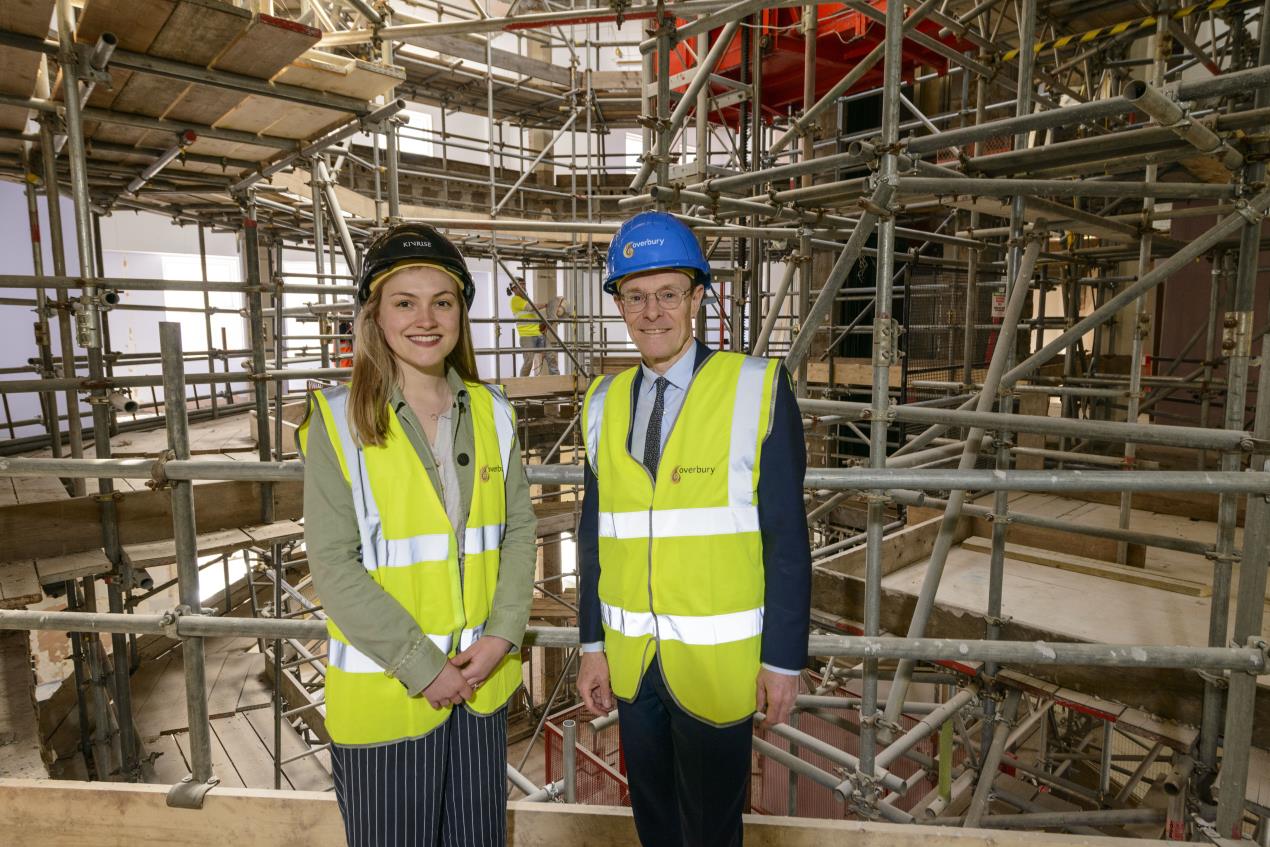Work to regenerate and restore the faded glory of another Victorian building in Birmingham’s historic Corporation Street is to receive a £9.5m investment from the West Midlands Combined Authority (WMCA). The ornate Citadel building is being transformed into an eco-friendly hybrid mix of office, retail and social space, helping to bring new life and vitality to what had traditionally been the city’s premier shopping street.
The investment follows hard on the heels of a commitment by the WMCA earlier this year to provide the funding needed to kickstart the transformation of the historic Murdoch Chambers & Pitman Building located on the opposite side of Corporation Street to the Citadel. Developer Kinrise, which specialises in reimagining and restoring iconic buildings, has now started work on the transformation of the Citadel which is expected to be the city’s most sustainable workplace once it is completed this summer.
It will offer more than 46,000 sqft of office, retail and social space behind its impressive Victorian façade and be run by a building app and state-of-the-art technology. It will be operationally net zero carbon, powered by 100% green electricity, with LED lighting, VRF air conditioning, electric car charging stations and cycle storage spaces. The scheme is expected to create or safeguard around 350 jobs and Kinrise is using local craftspeople and sustainably sourced materials throughout the renovation to support the city’s local economy and keep the building’s carbon footprint low.
Andy Street, Mayor of the West Midlands and chair of the WMCA, said: “It’s wonderful news that we have helped to unlock this exciting new development by Kinrise.
“Although this is their first foray into Birmingham, Kinrise are familiar with the modern renovation and repurposing of heritage buildings so I have great confidence in the revival of the Citadel building. This project is an excellent example of how we can combine modern technology and sensitive design with heritage preservation to give these beautiful buildings a new lease of life, generating fresh economic activity and job creation.
“What is particularly impressive about this scheme is the way Kinrise is taking an old, energy hungry Victorian building and turning it into a zero-carbon 21st Century space for fit for the future of work and play, simultaneously boosting our economy and tackling the climate emergency. This £9.5m WMCA investment, together with our funding of the nearby Murdoch and Pitman site, are just the latest examples of how we are putting money to good use to help drive a successful economic recovery as we bounce back from Covid. Corporation Street is being restored to its former glory one building at a time.”
Both the Citadel and Murdoch & Pitman investments are part of the WMCA’s nationally acclaimed brownfield regeneration programme which uses money secured from Government to provide new homes, jobs and commercial spaces on urban, brownfield sites, to drive economic growth while reducing pressure on the green belt.
Co-founder of Kinrise, Sam Lawson Johnston, said: “Our aim at Kinrise is to turn iconic yet un-loved buildings into creative and inspiring work and cultural spaces.
“Through our development of Citadel, we are proud to be able to usher a piece of Birmingham’s architectural heritage into a new era. We are delighted to be working alongside the WMCA to deliver contemporary and collaborative office working to this dynamic city and are proud of our role in reviving the soul of Corporation Street ahead of Citadel’s completion this summer.”
With the on-going shift away from bricks and mortar retail to on-line shopping, it is hoped both the Citadel and Murdoch & Pitman investments by the WMCA will help revitalise the northern end of Corporation Street which boasts several historic buildings including the Grade I Listed Victoria Law Courts and the Grade II Listed Methodist Central Hall, which has stood empty for nearly 20 years.
Councillor Mike Bird, WMCA portfolio holder for housing and land and leader of Walsall Council, said: “Even during the pandemic the WMCA continued to plough ahead with a pipeline of investments to help provide market confidence and put in place the building blocks required to drive the region’s post-Covid-19 economic recovery plans.
“These two Corporation Street investments are just the latest in that pipeline using the hundreds of millions of pounds we have secured from Government for brownfield regeneration and we believe they can play a key role in helping to restore and revitalise not only the two Victorian buildings themselves but the historic and cultural distinctiveness of the surrounding area.”
The WMCA’s recent commitment to invest in the Murdoch and Pitman building, a former vegetarian restaurant and hotel where Indian independence campaigner Mahatmah Gandhi is believed to have once dined, will see it converted into an ‘aparthotel’ offering 136 apartments. Corporation Street was originally developed in the 1870s as a Parisian-style boulevard – a scheme that was vigorously promoted by the city’s mayor Joseph Chamberlain.
A fictitious address on the street, 126b Corporation Street, features in "The Adventure of the Stockbroker's Clerk", a Sherlock Holmes story written by Arthur Conan Doyle and published in 1893. But the New Street Station end of Corporation Street suffered serious bomb damage during World War II with several buildings lost to the Birmingham Blitz and the subsequent redevelopments of the 1960s.











